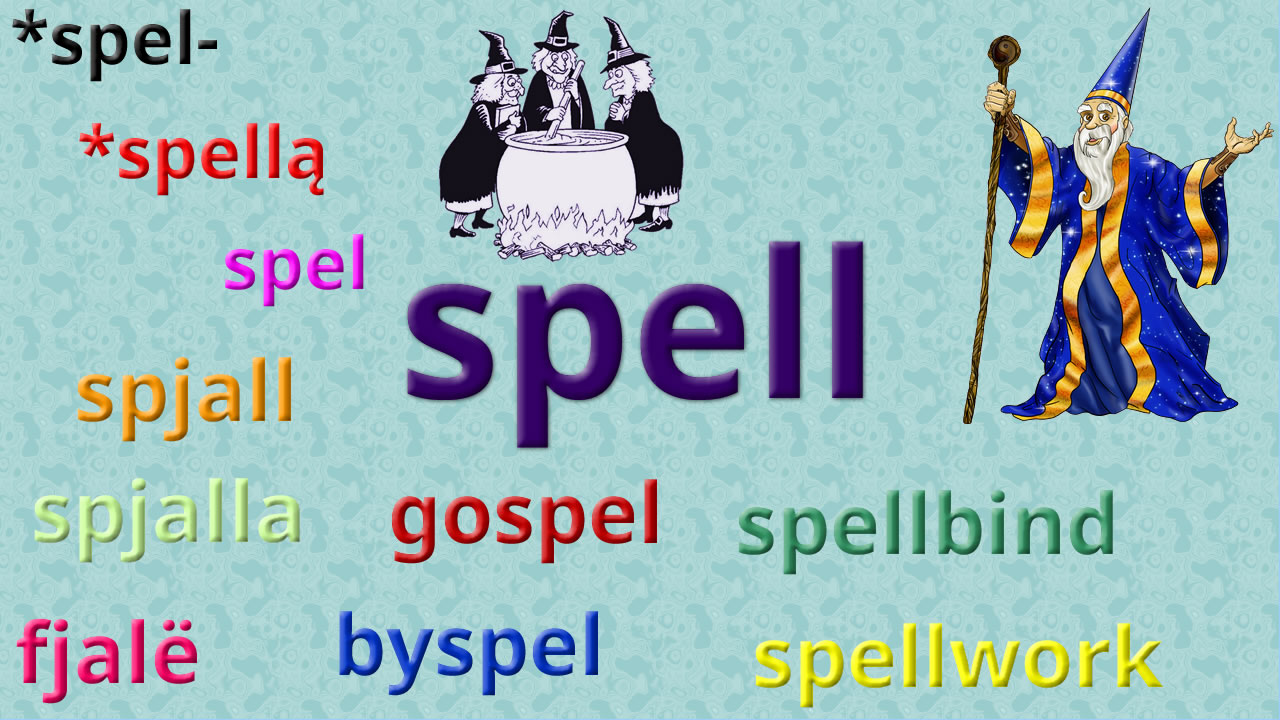Podcast: Play in new window | Download
Today we’re telling tales about the origins of the word spell.

Spell [spɛl] means:
- Words or a formula supposed to have magical powers.
- A magical effect or influence induced by an incantation or formula
- To put under the influence of a spell, to affect by a spell, to bewitch, fascinate, charm
Spell used to mean speech or discourse. It comes from the Middle English spel(l) (story, tale, narrative, report), from the Old English spell (news, story, prose), from the Proto-Germanic spellą (news, message, tale, story, legend),from the PIE *spel- (to tell) or from *bʰel- (to speak, sound) [source].
Words from the same roots include gospel and byspel (an example — rare) in English; spjall (talk, gossip) and spjalla (to chat, converse) in Icelandic; and fjalë (word) in Albanian [source].
The word spell (to be able to write or say the letters that form words), also comes from the same root, via the Middle English spellen (to mean, signify, interpret, to spell out letters), the Old French espeler (to call, cry out, shout, explain, tell), the Frankish *spelôn, and the Proto-Germanic *spellōną (to speak) [source].
Here’s a video I made of this information:
Video made with Doodly [afflilate link].
I also write about words, etymology and other language-related topics on the Omniglot Blog, and I explore etymological connections between Celtic languages on the Celtiadur.
You can also listen to this podcast on: Apple Podcasts, Amazon Music, Stitcher, TuneIn, Podchaser, PlayerFM or podtail.
If you would like to support this podcast, you can make a donation via PayPal or Patreon, or contribute to Omniglot in other ways.
